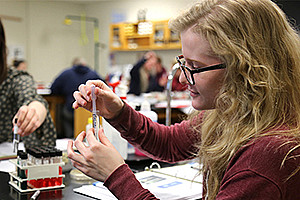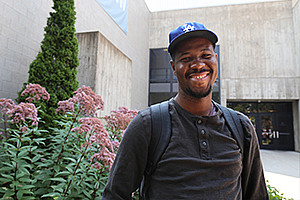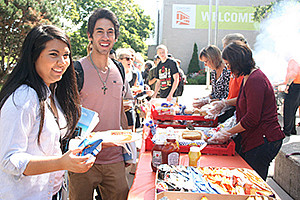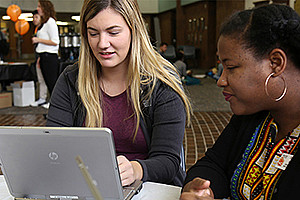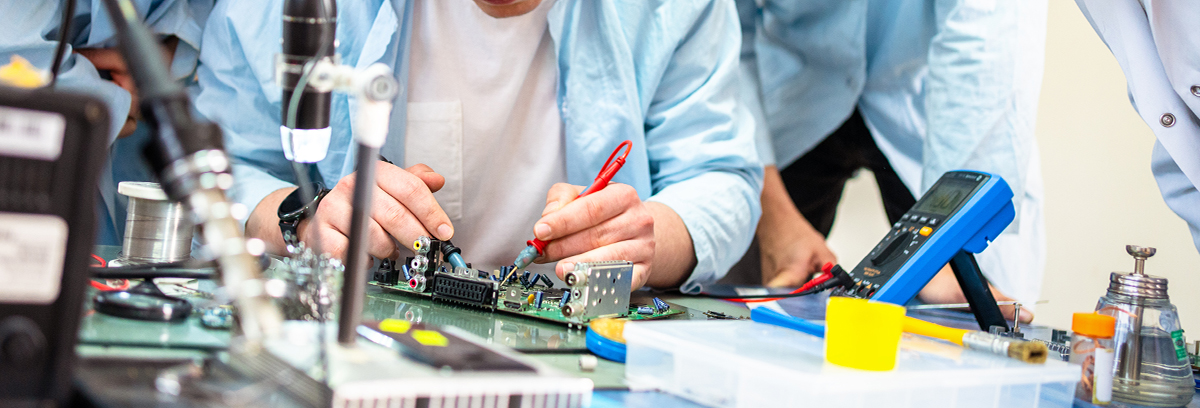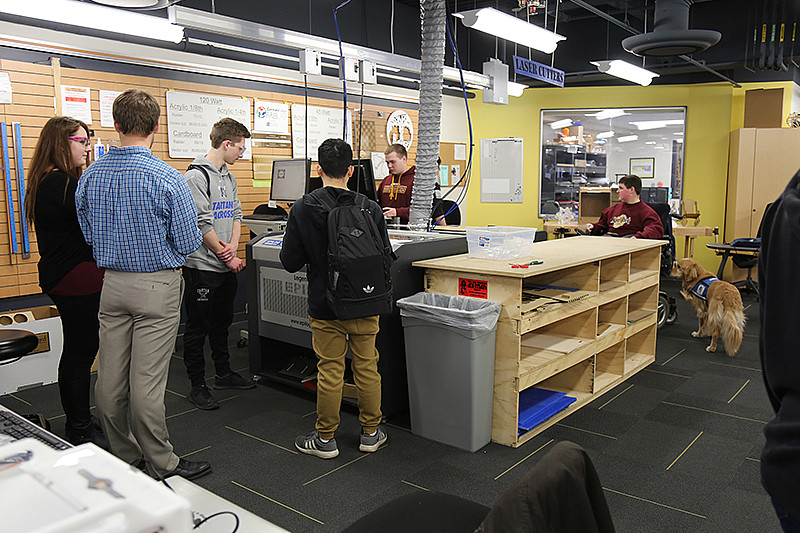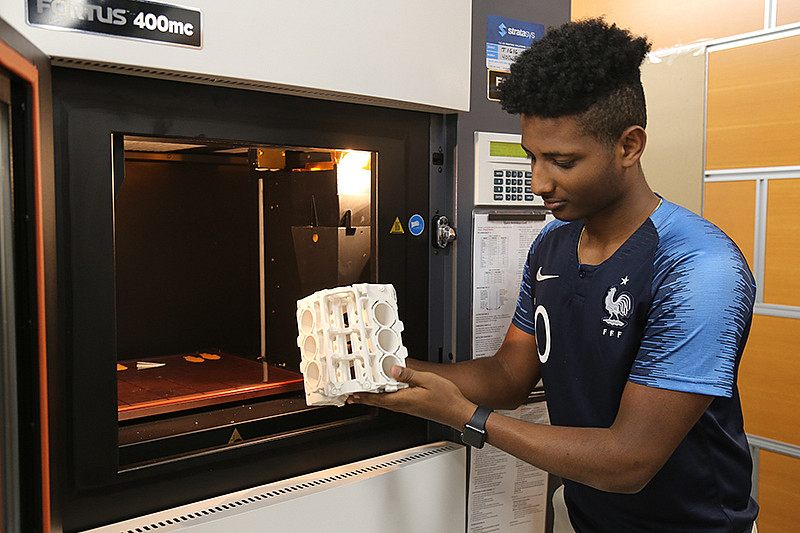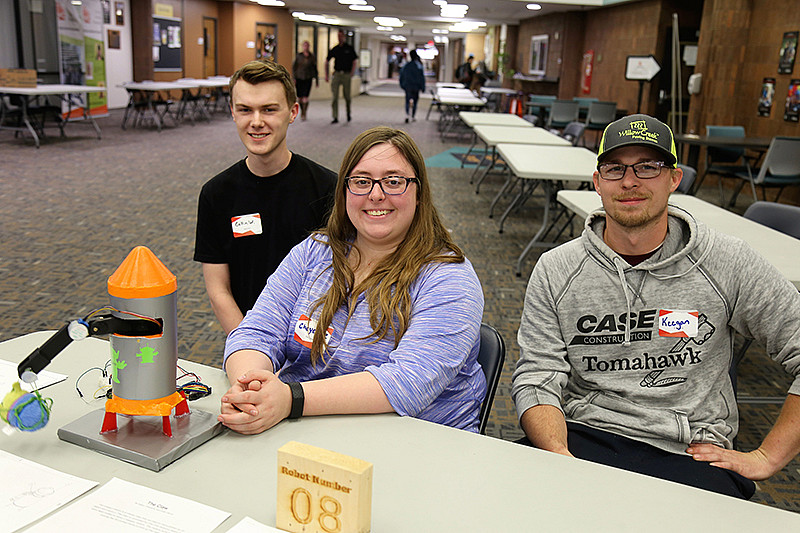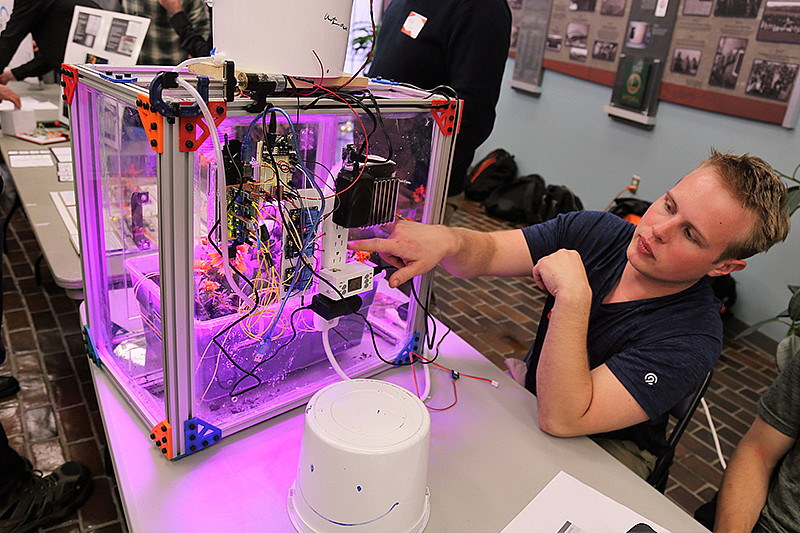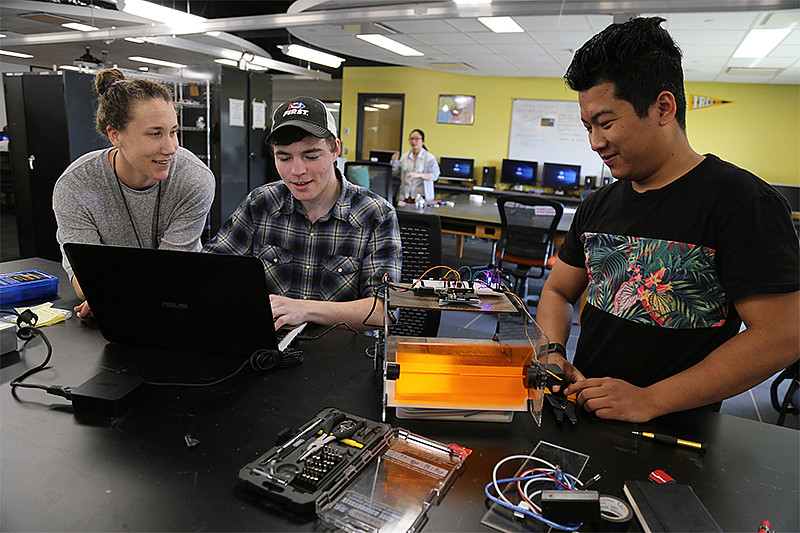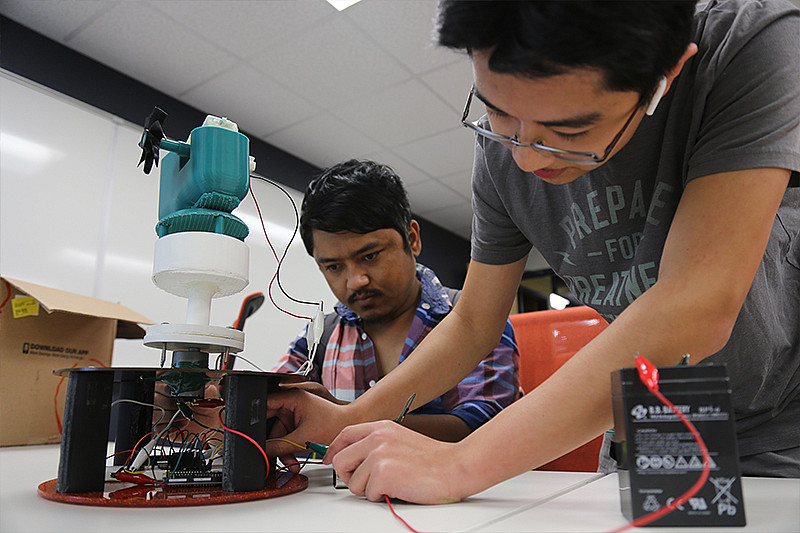Delivery: Daytime classes only.
Start: Fall, Spring, or Summer; Full- or Part-Time.
Prerequisite and General Education/MnTC courses are available in a mix of daytime, evening, and online classes; Fall, Spring, and Summer; Full- or Part-Time.
Associate of Science Degree
- Loading…
About the Program
The Associate in Science in Engineering is designed for students who plan to transfer to a four-year college or university to complete a baccalaureate degree program in one of the following engineering fields: aerospace, biomedical, bioproducts & biosystems, chemical, civil, computer, electrical, geological, material, mechanical, and general engineering.
In the Engineering program students will:
- Use cutting-edge digital design and 3D printing technologies to visualize and construct rockets, robots, and solar-powered cars
- Make a difference by inventing unique solutions to everyday problems
- Work individually and in teams to explore mechanical, electrical, chemical, and civil engineering
This program includes the courses usually required in the first two years of a baccalaureate engineering curriculum. Students are urged to acquaint themselves with the requirements of the major department in the college or university where they plan to transfer and to consult with the Century College Advising, Counseling, and Career Center for assistance in planning their program and selecting electives. Guide sheets are available in the Advising, Counseling, and Career Center for many engineering fields and transfer institutions.
Planning for Your Program
Cost & Financial Aid
-

As a two-year public community and technical college, Century College receives funding from the State of Minnesota, keeping tuition rates significantly lower than private colleges and universities. With affordable tuition rates and financial aid and scholarship opportunities, our students avoid student loan debt.
Financial Aid
Century College is accredited by the Higher Learning Commission, and our programs qualify for financial aid including grants, loans, and college work-study. Eligibility for financial aid is determined annually based on the Free Application for Federal Student Aid (FAFSA). Century College’s Federal School Code is 010546.
Scholarship Opportunities
Each year, the Century College Foundation awards more than $300,000 in scholarships to our students. Students are encouraged to create an account and apply for scholarships online.
Transfer

-
Transfer Information
Advanced planning is critical when you transfer. -
Transfer Planning - Articulation Agreements
These agreements help students transfer to four-year institutions.
Potential Job Titles

- Chemical Engineers *
- Civil Engineers *
- Computer Software Engineers, Applications *
- Mechanical Engineers *
- Electrical Engineers *
* with a bachelor’s and/or master’s degree
Salary Data
Chemical Engineers *
Average Wage: $39.10/hour
Top Earners: $59.88/hour
Computer Software Engineers, Applications *
Average Wage: $39.41/hour
Top Earners: $56.15/hour
Civil Engineers *
Average Wage: $41.13/hour
Top Earners: $57.37/hour
Electrical Engineers *
Average Wage: $45.35/hour
Top Earners: $62.75/hour
* with a bachelor’s and/or master’s degree.
Information gathered pertains to the seven-county metro area - careerwise.minnstate.edu
Digital Fabrication Lab (Fab Lab)
Our new state-of-the-art digital fabrication lab is aligned with MIT’s highly successful fab lab network. In the Fab Lab, you can build structures, machines, mechanisms, and circuits, using a variety of digital fabrication technologies including rapid prototyping machines, laser cutters, CNC circuit fabricators, plasma cutters, and many other tools.
Professional Engineering Organizations
- American Institute of Aeronautics and Astronautics
- American Institute of Chemical Engineers
- American Society of Civil Engineers
- American Society of Heating, Refrigerating, and Air-Conditioning Engineers
- American Society of Mechanical Engineers
- Institute of Electrical and Electronics Engineers
- Institute of Industrial and Systems Engineers
- National Society of Professional Engineers
- SAE International
- Society of Hispanic Professional Engineers
- Society of Women Engineers

